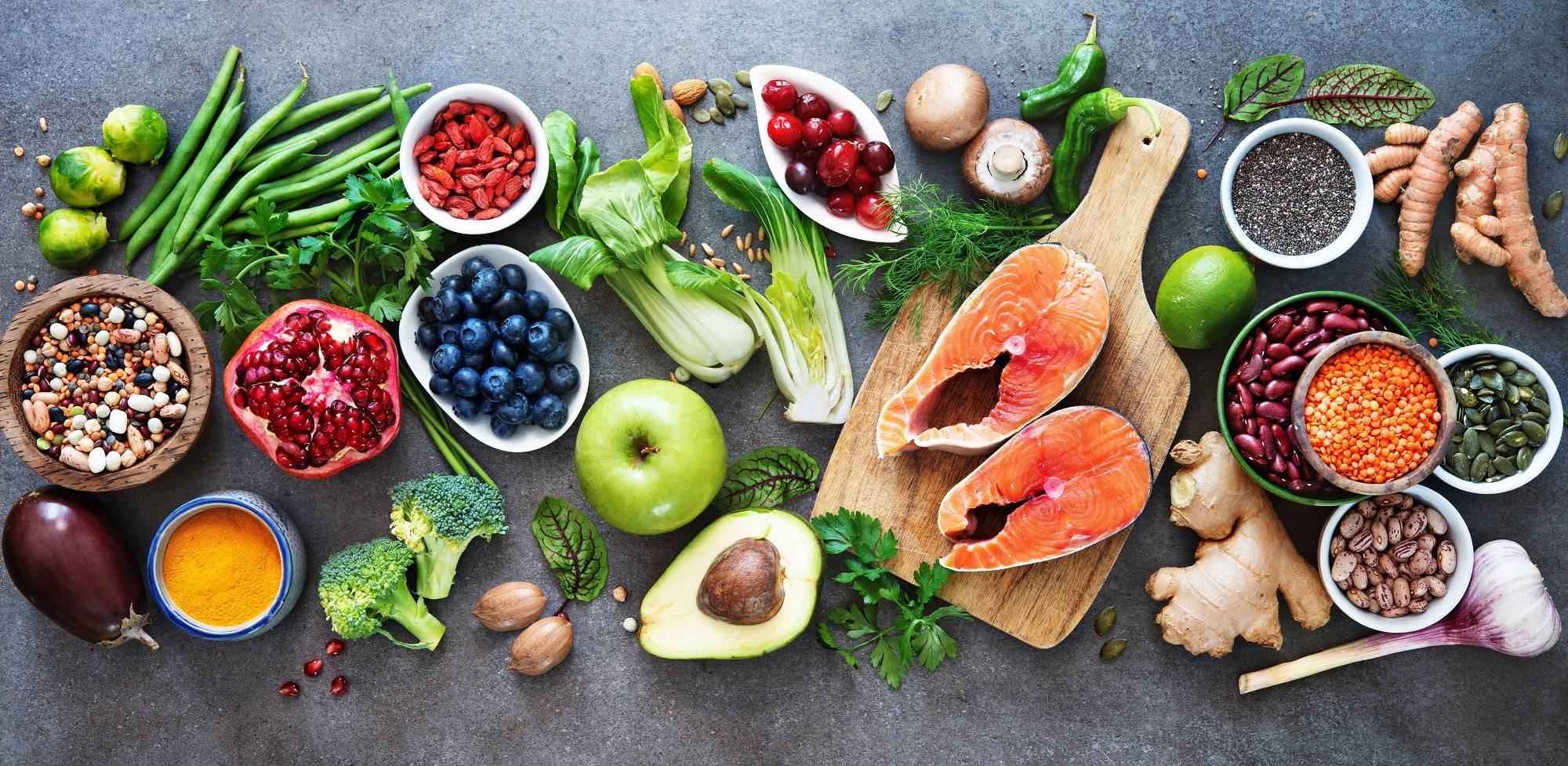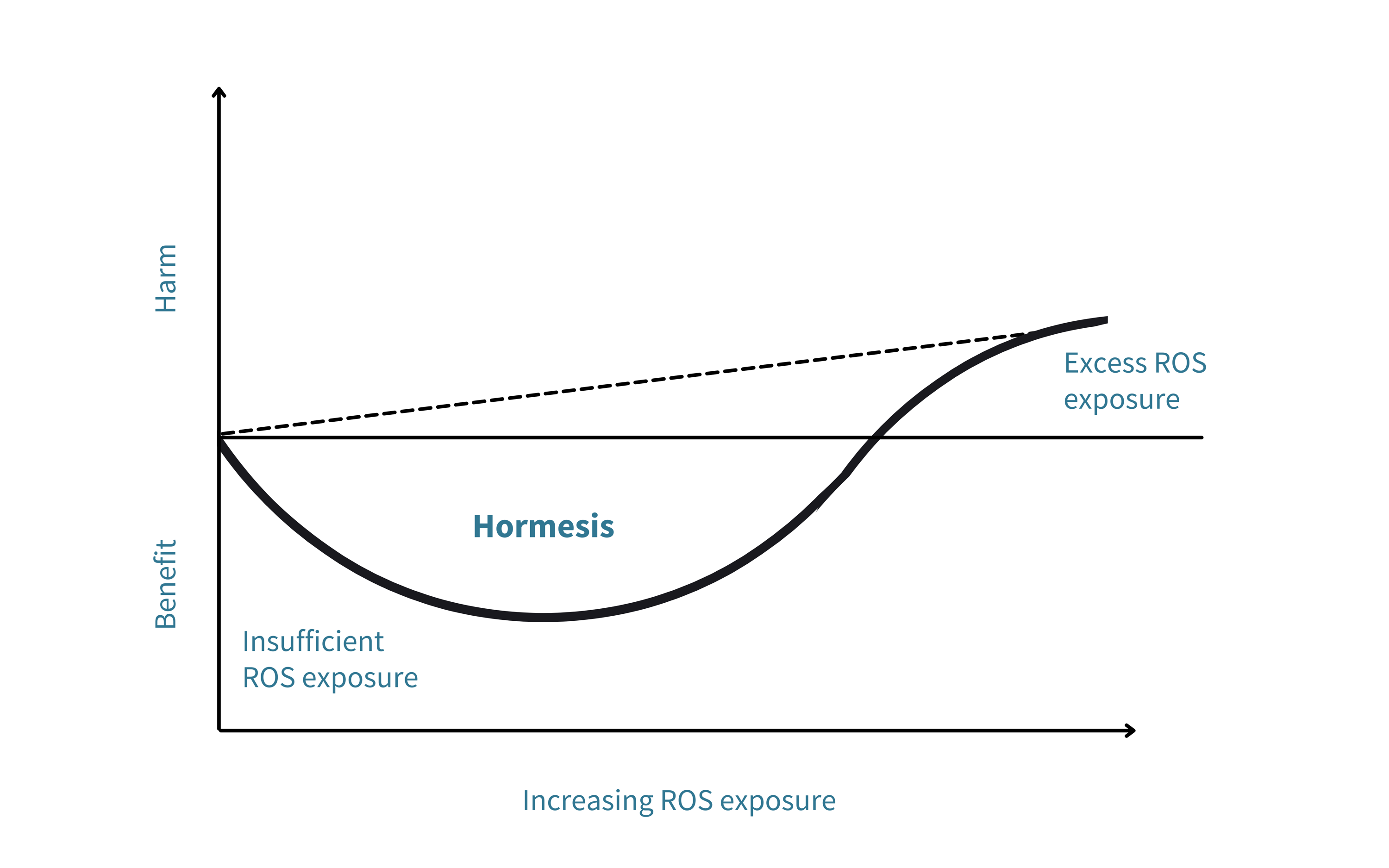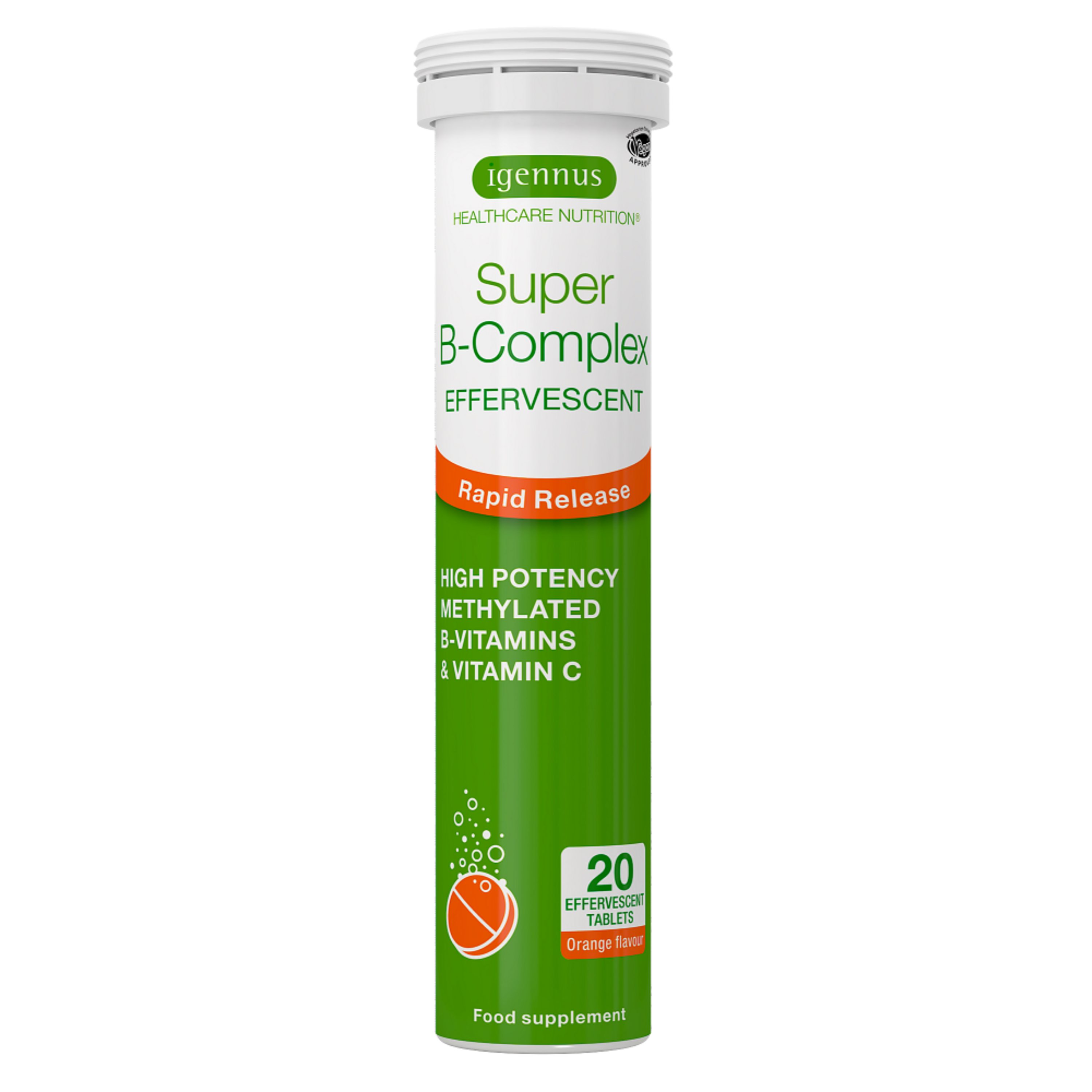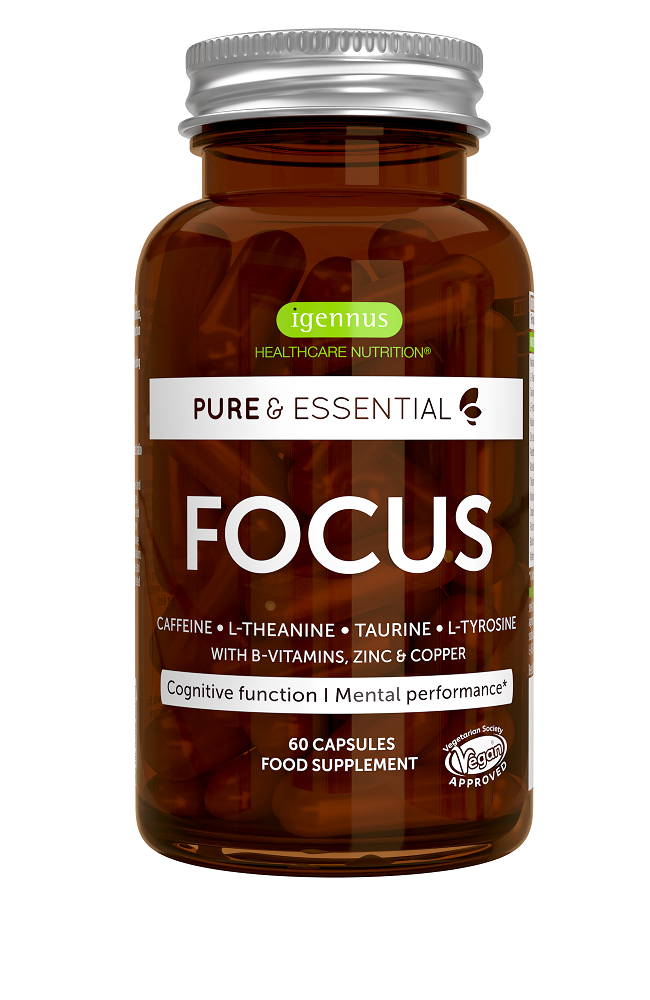Supporting and improving energy production
Many adults strive for that boundless energy we may remember from our childhood; we all rely on its mental application for focus, concentration and memory recall, and physically for speed, strength and endurance. In an ideal world, it should be manufactured and spent in equal measure. However, imbalances between conservation and expenditure often occur and result in sub-optimal performance.

The science - how the body makes energy
The sun is a fundamental source of energy for all life on earth, from plants to animals, and humans who consume either or both of these. Energy provides power to every cell in the body. The body harnesses this energy via dietary macronutrients: carbohydrates, fats and proteins. Once consumed, macronutrients are metabolised in the cells – through a process called the ‘Krebs’ or citric acid cycle into the energy-yielding substance adenosine triphosphate (ATP). This process takes place in tiny cellular organelles called mitochondria, which are found within almost all cells in the body. Mitochondria act as microscopic powerhouses, synthesising ATP through cellular respiration to power cells and are responsible for maintaining energy levels. The number of mitochondria depends on the energy requirements of the particular cell - for example, heart muscle cells house around 5000 mitochondria, whereas skin cells contain only a few hundred. Specific nutrient co-factors and co-enzymes are required for this complex and demanding process, including:
B-vitamins
iron
magnesium
co-enzyme Q10
choline
copper
manganese
taurine
carnitine
cysteine
lipoic acid
medium chain tryglycerides (MCTs) (1)
If these cofactors are readily available from the diet and mitochondria are performing efficiently, a healthy amount of ATP molecules should be manufactured per cycle. However, many obstacles can hinder this vital process.
Common barriers to energy production
Stress
Stress can have a huge negative effect on energy levels by increasing energy expenditure and temporarily affecting normal appetite. Prolonged or chronic stress often leads to poor dietary choices and reduced motivation for exercise long-term, with links to obesity, depression, neurodegeneration and cardiovascular disease. (2)
A temporary state of alarm can be caused by simple (and common) stressors such as an approaching deadline, a toddler tantrum or a work presentation. In these circumstances, the stress hormones adrenaline, noradrenaline and cortisol will be released, which, in turn, increase blood glucose levels, providing energy rapidly in preparation for acute physical or mental exertion. (3) During prolonged periods of stress, however, vital energy processes can become dysregulated. (4) Basic survival and defence will be prioritised, likely increasing inflammation, sensitivity to foods and other environmental substances and insulin and cortisol resistance – all of which have a significant effect on energy and can be detrimental to mitochondrial function. (5) In these circumstances the body adapts to its new heightened state of alert by diverting energy and resources away from non-essential systems such as fertility and digestion. (6)
Chronic stress can also affect the thyroid, with tiredness often reported as a primary symptom of thyroid dysfunction. (7,8)
Finally, exhaustion occurs when the body is no longer able to maintain ‘balance’, becoming dysfunctional and fatigued. Resources have been drained to such an extent that illness occurs. Fortunately, even at this point, recovery is still possible. (1)
Inflammation
As well as stress, infection, poor diet and poor gastrointestinal integrity can increase inflammatory load. Inflammation can disrupt mental health, cause pain and deplete nutrient resources, all of which can lead to chronic health conditions. In a state of low-grade inflammation the immune system is upregulated and mitochondria work harder to fulfil the additional energy requirements. Reactive oxygen species (ROS) are a by-product of energy manufacture and the mitochondria themselves may become damaged or destroyed by the surge in circulating ROS, in a vicious, energy-depleting cycle. (9) Supplementing omega-3 EPA and increasing antioxidant intake can help to balance inflammation and improve mitochondrial health.

Toxicity
The liver plays an essential role in energy metabolism by converting, synthesising and storing energy sources for the rest of the body. (10) As it is also required for the elimination of toxins in the blood, elevated toxicity from substances such as alcohol, medication and chemical exposure can increase the burden on the liver, impairing its efficiency.
The role of sugar and caffeine

WAYS TO SUPPORT ENERGY PRODUCTION

Energy or adrenaline
Supplementation for energy slumps


references
1. Wesselink, E., Koekkoek, W., Grefte, S., Witkamp, R. and van Zanten, A., 2019. Feeding mitochondria: Potential role of nutritional components to improve critical illness convalescence. Clinical Nutrition, 38(3), pp.982-995.
2. Rabasa, C. and Dickson, S., 2016. Impact of stress on metabolism and energy balance. Current Opinion in Behavioral Sciences, 9, pp.71-77.
3. Thau L, Gandhi J, Sharma S. Physiology, Cortisol. In: StatPearls. Treasure Island (FL): StatPearls Publishing; September 6, 2021.
4. Yazdi, Z. and Sadeghniiat-Haghighi, K., 2015. Fatigue management in the workplace. Industrial Psychiatry Journal, 24(1), p.12.
5. Dhabhar, F., 2014. Effects of stress on immune function: the good, the bad, and the beautiful. Immunologic Research, 58(2-3), pp.193-210.
6. Whirledge S, Cidlowski JA., 2010. Glucocorticoids, stress, and fertility. Minerva Endocrinol, 35(2), pp.109-125.
7. Markomanolaki ZS, Tigani X, Siamatras T, et al., 2019. Stress Management in Women with Hashimoto's thyroiditis: A Randomized Controlled Trial. J Mol Biochem, 8(1), pp.3-12.
8. nhs.uk. 2022. Underactive thyroid (hypothyroidism) - Symptoms. [online] Available at:
9. Liang, Q. and Kobayashi, S., 2016. Mitochondrial quality control in the diabetic heart. Journal of Molecular and Cellular Cardiology, 95, pp.57-69.
10. Rui, L., 2014. Energy Metabolism in the Liver. Comprehensive Physiology, pp.177-197.
11. Alcántar-Fernández, J., González-Maciel, A., Reynoso-Robles, R., Pérez Andrade, M., Hernández-Vázquez, A., Velázquez-Arellano, A. and Miranda-Ríos, J., 2019. High-glucose diets induce mitochondrial dysfunction in Caenorhabditis elegans. PLOS ONE, 14(12), p.e0226652.
12. Saad, M., 2018. Obesity, Diabetes, and Endothelium: Molecular Interactions. Endothelium and Cardiovascular Diseases, pp.639-652.
13. nhs.uk. 2022. Overactive thyroid (hyperthyroidism) - Symptoms. [online] Available at:
14. Franco J, Amaya-Amaya J, Anaya J. 2013. Thyroid disease and autoimmune diseases. In: Anaya J, Shoenfeld Y, Rojas-Villarraga A, et al., editors. Autoimmunity: From Bench to Bedside [Internet]. Bogota (Colombia): El Rosario University Press; Chapter 30. Available from: https://www.ncbi.nlm.nih.gov/books/NBK459466/
15. Abbaspour, N., Hurrell, R., & Kelishadi, R. 2014. Review on iron and its importance for human health. Journal of research in medical sciences : the official journal of Isfahan University of Medical Sciences, pp.19(2), 164–174.
16. Who.int. 2022. Fact sheets - Malnutrition. [online] Available at:
17. Nehlig, A., 2015. Effects of coffee/caffeine on brain health and disease: What should I tell my patients?. Practical Neurology, 16(2), pp.89-95.
18. Matenchuk, B., Mandhane, P. and Kozyrskyj, A., 2020. Sleep, circadian rhythm, and gut microbiota. Sleep Medicine Reviews, 53, p.101340.
19. Yoshii, K., Hosomi, K., Sawane, K. and Kunisawa, J., 2019. Metabolism of Dietary and Microbial Vitamin B Family in the Regulation of Host Immunity. Frontiers in Nutrition, 6.
20. Walker, M., 2018. Why We Sleep. London: Penguin Books, p.107.
21. Melhuish Beaupre, L., Brown, G., Braganza, N., Kennedy, J. and Gonçalves, V., 2021. Mitochondria’s role in sleep: Novel insights from sleep deprivation and restriction studies. The World Journal of Biological Psychiatry, 23(1), pp.1-13.
22. Sorriento, D., Di Vaia, E. and Iaccarino, G., 2021. Physical Exercise: A Novel Tool to Protect Mitochondrial Health. Frontiers in Physiology, 12.
23. Buijze, G., Sierevelt, I., van der Heijden, B., Dijkgraaf, M. and Frings-Dresen, M., 2016. The Effect of Cold Showering on Health and Work: A Randomized Controlled Trial. PLOS ONE, 11(9), p.e0161749.
24. Hyatt, B., 2018. Psychiatric Aspects of Extreme Sports: Three Case Studies. The Permanente Journal,.
25. Sharma, C., Kim, S., Nam, Y., Jung, U. and Kim, S., 2021. Mitochondrial Dysfunction as a Driver of Cognitive Impairment in Alzheimer’s Disease. International Journal of Molecular Sciences, 22(9), p.4850.
26. Ihsan, M., Markworth, J., Watson, G., Choo, H., Govus, A., Pham, T., Hickey, A., Cameron-Smith, D. and Abbiss, C., 2015. Regular postexercise cooling enhances mitochondrial biogenesis through AMPK and p38 MAPK in human skeletal muscle. American Journal of Physiology-Regulatory, Integrative and Comparative Physiology, 309(3), pp.R286-R294.
27. Owen, G., Parnell, H., De Bruin, E. and Rycroft, J., 2008. The combined effects of L-theanine and caffeine on cognitive performance and mood. Nutritional Neuroscience, 11(4), pp.193-198.
28. Zaragoza, J., Tinsley, G., Urbina, S., Villa, K., Santos, E., Juaneza, A., Tinnin, M., Davidson, C., Mitmesser, S., Zhang, Z. and Taylor, L., 2019. Effects of acute caffeine, theanine and tyrosine supplementation on mental and physical performance in athletes. Journal of the International Society of Sports Nutrition, 16(1).
29. Research, I. and Marriott, B., 2022. Tyrosine and Stress: Human and Animal Studies. [online] Ncbi.nlm.nih.gov. Available at:
30. Schaffer, S., Shimada, K., Jong, C., Ito, T., Azuma, J. and Takahashi, K., 2014. Effect of taurine and potential interactions with caffeine on cardiovascular function. Amino Acids, 46(5), pp.1147-1157.
we're listening
These achievable steps can go a long way towards improving your energy and helping you to take positive steps toward your health goals. If you require more assistance, feel free to contact our approachable team of nutrition professionals who will be more than happy to support you further or point you in the right direction.



